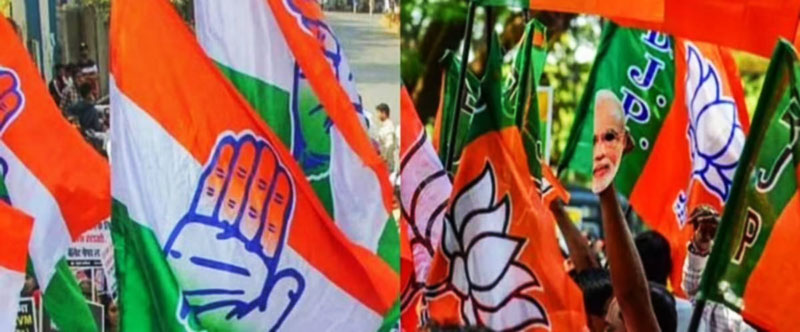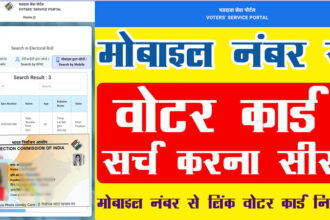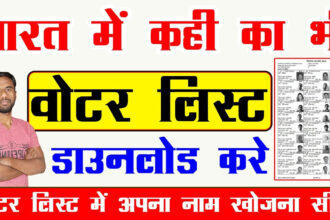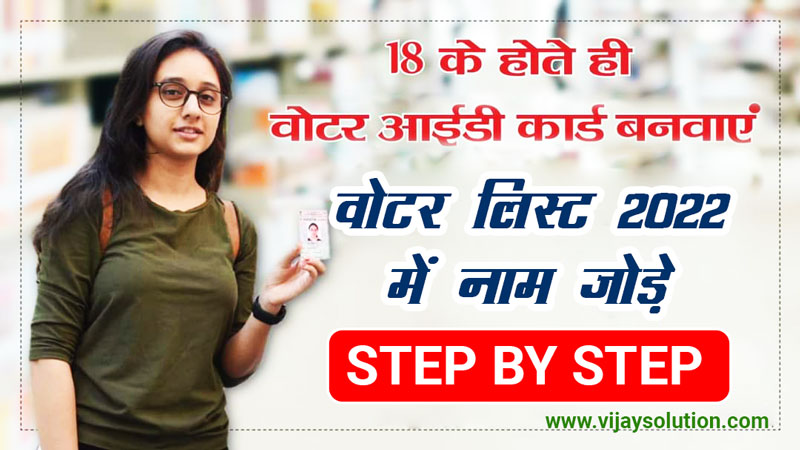After the Model Code of Conduct comes into force, political parties have to stop every activity which is likely to affect the voters. A code of conduct is a set of rules and guidelines. Through this, it is decided that after the announcement of elections, which activities should be avoided by political parties. It contains rules related to speeches, polling days, polling stations, portfolios, election manifestos, processions and rallies. Its objective is to conduct clean and fair elections.
- What is code of conduct?
- History of Code of Conduct
- What has the Supreme Court said about the code of conduct?
- What about violation of code of conduct?
- What is included in the election code of conduct?
- Where is the code of conduct in the country at present?
- Do’s and don’ts when code of conduct is in force
- Provision of jail, prosecution for violation of election code of conduct
- Who is in the Election Commission?
- What works do not stop in the code of conduct
- Special things related to the code of conduct –
- ]Now digital technology is keeping an eye on the candidates –
- Why is a code of conduct needed?
- Since when is the code of conduct considered in force?
- What is the provision on violation of code of conduct?
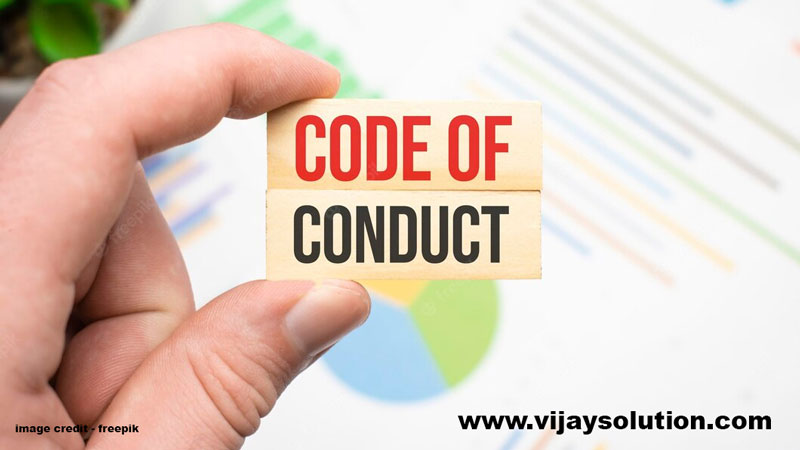
After the Model Code of Conduct comes into force, political parties have to stop every activity which is likely to affect the voters. If we talk about elections, then the rules and regulations related to it, which are prepared by the Election Commission, are called election code of conduct. The candidates of each party and the government also have to follow this rule during the election.
What is code of conduct?
The Election Commission makes some rules to conduct free and fair elections in the country. These rules of the Election Commission are called the code of conduct. It is the responsibility of the government, leaders and political parties to follow these rules during the Lok Sabha / Vidhan Sabha elections.
It is actually a manual, which is prepared by the Election Commission to conduct free, fair and transparent elections in the country. It is necessary for political parties and candidates to follow this code of conduct during elections. It is also called the Model Code of Conduct for Elections. In English it is also called model election code of conduct. Just before the elections, the Election Commission announces the implementation of the Model Code of Conduct. It expires after the election.
When does the code of conduct come into force?
The model code of conduct comes into force from the day the election schedule is announced. Till the election results are out, the model code of conduct remains in force. Elections to the Lok Sabha are held every five years in the country. Elections to the Legislative Assemblies of different states are held at different times. The model code of conduct comes into force as soon as the Election Commission announces the election schedules.
Why was the need for a code of conduct felt?
Friends, there was a time when loudspeakers used to play throughout the day and throughout the night during elections. The walls of people’s houses were covered with posters and banners. Dabang candidates used to buy votes on the basis of liquor and money. At some places, incidents like capturing of polling booths also used to happen.
Also Read…
- Patna High Court Vacancy for Stenographer & Computer Operator 2023 apply online
- Rojgar Rin Yojana Bihar 2023 upto 5 lakh Apply online
- Indian Army Registration 2023 online apply
- फसल सहायता योजना बिहार 2023 ऑनलाइन आवेदन करे
- BSC Nursing course salary syllabus 2023- बीएससी नर्सिंग कोर्स की पूरी जानकारी
- UIDAI E learning portal 2023 for Aadhar enrollment & update certificate
- BCA Course Details in Hindi syllabus- बीसीए कोर्स करने के फायदे और पात्रता
History of Code of Conduct
- For the first time it was used in the 1960 assembly elections in Kerala. The parties were instructed by preparing a small set of rules. They were told what to do and what not to do after the announcement of the election. After that these rules were also divided in the elections of Lok Sabha and Vidhan Sabha in 1962. The State Governments were urged to make the code of conduct acceptable between the parties.
- The model code of conduct was also implemented in the 1967 Lok Sabha and Rajya Sabha elections.
- In the year 1979, after consultation with political parties, a change was made in the code of conduct. A new section was added to ensure that the ruling party does not take undue advantage by using its power and power. Through this, certain limits were set for the ruling party.
- In 1991, steps were taken to strengthen the code of conduct and it was reissued. The code of conduct in the form in which it was issued in 1991 has continued till date.
- In 2013, the Supreme Court ordered the Election Commission to include guidelines related to the election manifesto. Complying with the Supreme Court order, the commission also included the rule related to manifesto in the 2014 Lok Sabha elections.
What has the Supreme Court said about the code of conduct?
About 21 years ago today in 2001 Supreme court The Supreme Court has clearly said in a decision that the election code of conduct will be deemed to be applicable from the date of issuance of notification of the Election Commission.
Earlier, there was a dispute regarding the date of implementation of the code of conduct. Although it was complied with by the Election Commission. Penal provisions were also added for its violation.
What about violation of code of conduct?
The Election Commission ensures that all the parties at the Center and in the state adhere to the model code of conduct. Sometimes a party or a candidate violates these rules. They resort to crime or indulge in corruption to win elections. Many a times they intimidate the voters or lure them with money, liquor, clothes and any other thing. Any person can complain of such violation. The Election Commission takes action against the violators. Violators can be punished with imprisonment.
The Election Commission has launched the Civil App. With the help of this, any person can record the violation of the code of conduct in his mobile and send it further to the election authorities for appropriate action.
What is included in the election code of conduct?
For the elections to be transparent and according to the rules and regulations, it has been necessary to follow the electoral code of conduct. An electoral code of conduct consists of the following things-
- No public appeal can be made by the government. It includes various programs like inauguration, foundation stone laying ceremony.
- There will be a ban on the misuse of government machinery by any political party and their candidates. This means that government vehicles, aircraft or any government bungalow will not be used for election campaign.
- Raising issues related to caste, religion and region by political parties and candidates will be prohibited. That is, they will not be able to ask for votes in the name of religion, caste etc. in the rally.
- Prohibition on use of muscle power, money power during elections.
- Any political party, candidate or supporters will be required to take the permission of the police before the rally.
- There will be a ban on the transfer of officials, officials directly or indirectly connected with the election. If his transfer or posting is necessary, then it will be necessary to take permission from the commission.
- In case of emergency or unforeseen calamity, the government will have to take permission from the Election Commission to announce welfare measures.
- Prohibition on public meetings and processions during the period of 48 hours ending with the time fixed for the conclusion of polling.
- Ban on any type of opinion poll or exit poll.
- Ban on advertisements touting the achievements of the government.
- Ban on writing crazy posts on social media.
- Prohibition on campaigning at a distance of 100 meters from the polling stations.
- Prohibition on distributing liquor on the day of polling and 48 hours before it.
- Prohibition on entry inside polling booths without a valid pass from the Election Commission.
- Restriction on any symbol, name of candidate or name of party on voter slip.
- Prohibition on providing vehicles to voters by parties or candidates to the polling station.
- Prohibition on the installation of publicity material on the walls of any person’s land, building, premises without his permission.
Where is the code of conduct in the country at present?
Friends, you must be aware that elections are going on in five states of the country at this time. These states are- Uttar Pradesh, Manipur, Punjab, Goa and Uttarakhand, the largest state of the country. Of these, votes have been cast in Uttarakhand on February 14, but in Uttar Pradesh, there are still several phases of voting left.
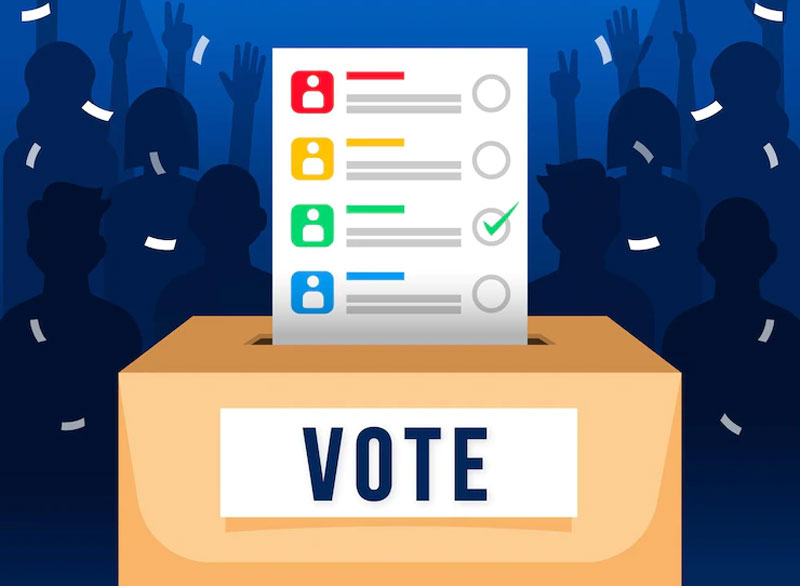
The code of conduct is still in force in these states. The model code of conduct will automatically be removed once the votes are counted, that is, the results of the election. For your information, let us tell you that the result of the elections in these states will come on March 10, 2022. In such a situation, it is clear that the code of conduct will remain in force here till March 10, 2022.
What can happen if you go against the rules of the Code of Conduct?
So that the Election Commission can get the election work done in a proper and systematic way, it is announced to implement the code of conduct before the election and if someone behaves against its rules, there is also a provision of punishment and the following action can be taken on them –
- Candidate can be thrown out of election campaign
- Candidature of the candidate is also liable to be canceled
- FIR can be registered against him
- Can be sent to jail in many cases
Do’s and don’ts when code of conduct is in force
- No religious place should be used as a platform for election campaign
- It is considered a taboo to do anything that hurts one’s religious and ethnic sentiments.
- Bribery should not be given to attract voters during elections.
- Can’t carry large amounts of cash
- You can criticize policies but no personal criticism can be done to get votes.
- Property owned by someone should not be used without his permission
- Government property should not be misused for election work
- Public property cannot be used for the purpose of benefiting any particular party
- Organizing the meetings, inform the concerned police station about the time, place and route for the rallies.
- Loudspeaker should be used only as per rules
- No other parties should be obstructed in any way
- Liquor should not be distributed to anyone 24 hours before polling
- The procession should be taken out in such a way that the traffic is not affected.
- Advertisement cannot be issued with government money
- It should be known that during the elections, the rules of the code of conduct are imposed very strictly so that free and fair elections can be held in the country and there is a provision of punishment for going against or violating its rules.
Provision of jail, prosecution for violation of election code of conduct
Friends, are informing you that if any political person or party violates the election code of conduct, then there may be a provision of FIR i.e. trial as well as jail. If we talk about the current elections, then many leaders have been booked by citing various acts like disaster. Take the example of Roorkee.
The Election Commission had banned any kind of public meeting till January 22, 2022. The Kovid guidelines are also going on with the election code of conduct. The Election Commission filed a case against the Azad Samaj Party, Bhim Army and others for violation of the code of conduct in violation of the guide line, as well as against eight nominated under the Disaster Management Act.
At the same time, earlier, on behalf of Padrauna Kotwali police, a case was registered against more than one hundred and fifty people including former student union president of Udit Narayan PG College, Gaurav Tiwari. The allegation was that he had taken out a rally in the city without permission.
Earlier, an FIR was lodged against 60 people, including a BJP leader, in violation of the model code of conduct in Hardoi.
Who is in the Election Commission?
Friends, we told you that the election code of conduct is announced by the Election Commission. Today let us tell you who is in the Election Commission. Friends, as far as the Election Commission of India is concerned, there are three officials in it.
Chief Election Commissioner i.e. Chief Election Commissioner and two Election Commissioners to assist him i.e. Election Commissioner. At present, the Chief Election Commissioner of the country is Sushil Chandra, while Rajiv Kumar and Anoop Chandra Pandey have been posted as Election Commissioners with him.
What works do not stop in the code of conduct
Friends, we told you that after the implementation of the election code of conduct, new work cannot be approved. But there are many people who do not hesitate to stop the current and necessary work of the people by making excuse of the election code of conduct. Let us inform you that despite the imposition of the code of conduct, your work will not stop-
- Make aadhar card
- To make caste certificate.
- Work related to the process of pension.
- Work related to electricity and water.
- Sanitary related works.
- repair of roads.
- Already ongoing projects.
- Financial support for treatment.
- If you have already applied for passing the house map, then pass it.
Special things related to the code of conduct –
Friends, let us now tell you the special things related to the election code of conduct, which are as follows-
- The provision of electoral code of conduct has not been made in the Indian Constitution. It has evolved as a process with the mutual consent of the political parties.
- The model code of conduct was first framed during the Kerala Legislative Assembly elections in 1960. The candidates and parties were told what to do and what not to do.
- If we talk about the Lok Sabha elections, for the first time in 1962, the Election Commission distributed the code of conduct among all the political parties.
- For the first time in the 1967 Lok Sabha and Vidhan Sabha elections, the state governments were asked to get the political parties to follow it.
]Now digital technology is keeping an eye on the candidates –
The era is hi-tech, so why should the Election Commission be behind. It has launched the C-vigil app a few years back with the intention of making the code of conduct user friendly and keeping an eye on political parties and candidates.
It was used extensively in the elections of Madhya Pradesh, Chhattisgarh, Telangana, Mizoram, Rajasthan etc. Now it is being used extensively in the elections of five states in 2022. Its benefits are as follows-
- Anyone can report a violation of the code of conduct in the election states. For this, he has to upload only one photo showing the violation or video recording of maximum two minutes.
- Through GPS, the concerned officials automatically get information about where the election code of conduct has been violated.
- The identity of the complainant is kept confidential. He is given a unique ID for the report. If the complaint is found to be true, action is taken on it within a stipulated period.
- Friends, let us tell you that apart from this, the Election Commission has also provided facilities like National Complaint Service, Sugam (SUGAM), Election Monitoring Dashboard, Integrated Contact Center etc.
Why is a code of conduct needed?
The code of conduct is prepared by the Election Commission
Since when is the code of conduct considered in force?
With the implementation of the election program of the Election Commission, the code of conduct is considered to be in force.
What is the provision on violation of code of conduct?
Provision for FIR and jail has been made for violation of code of conduct.
The code of conduct remains in force till the completion of the election process. With the announcement of the election date, the model code of conduct comes into force in the country and continues till the votes are counted.
